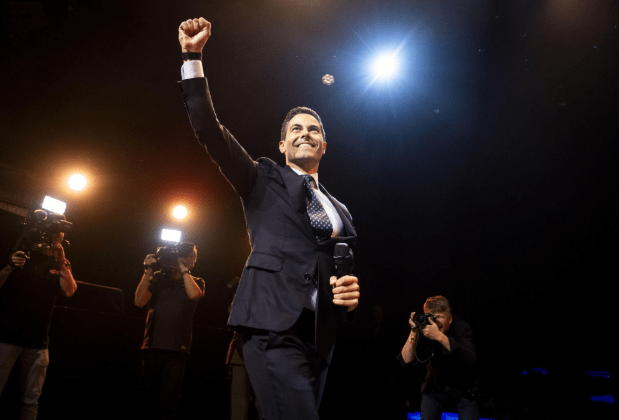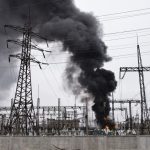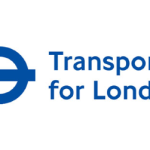In a dramatic electoral twist, the centrist-liberal D66 party, led by Rob Jetten, has edged out Geert Wilders’ far-right Party for Freedom (PVV) in the Dutch parliamentary election, according to the national press agency ANP.
With 99.7% of votes counted, D66 emerged narrowly ahead, by just 15,155 votes, despite both D66 and the PVV securing 26 seats each in parliament.
The result places Jetten in the driving seat to form the next Dutch government, a role traditionally reserved for the largest party.
“Historic result for D66. Very proud of that. At the same time, I feel a great responsibility to quickly start exploring options this week in order to form a stable and ambitious government,” Jetten said Friday
D66’s Surprise Win Reshapes Dutch Political Landscape
The vote was as tight as they come. While D66 scraped into the lead, the outcome reflects a deeply divided electorate.
Wilders’ PVV had been expected to dominate following gains in previous elections, but D66’s progressive, pro-European stance appears to have struck a chord with enough voters to hold off the far-right tide.
How Rob Jetten Outmanoeuvred the Far Right at the Polls
Jetten, running on a message of optimism and unity, managed to overcome the momentum built by Wilders.
His campaign, focused on economic responsibility, climate action, and defending democratic values, offered a clear contrast to PVV’s anti-immigration, populist agenda.
As results rolled in, D66 and PVV were neck and neck. But as the last votes were tallied, Jetten’s party managed to pull ahead, making history in the process.
Parliamentary Breakdown:
| Party | Seats Won |
|---|---|
| D66 | 26 |
| Party for Freedom (PVV) | 26 |
| People’s Party for Freedom (VVD) | 22 |
| GreenLeft-Labour Alliance | 20 |
| Christian Democratic Appeal (CDA) | 18 |
| Conservative JA21 | 9 |
This tight race now throws the spotlight on coalition-building, a process that could take months in the Netherlands’ notoriously fragmented political landscape.
Coalition Talks Could Be Turbulent – Here’s Why
Jetten now faces the tough task of piecing together a workable coalition. He’s signalled a preference for broad centrist cooperation, recognising that D66 is what he calls a “small large party” a significant force, but not dominant.
“I think voters have made it clear that working together in the centre is really the message behind this result,” Jetten stated.
But bridging the gap between the centre-right VVD and the leftist GreenLeft-Labour alliance may prove politically treacherous.
The two camps sparred bitterly during the campaign and show no signs of softening. Even caretaker Prime Minister Dick Schoof admitted the road ahead will be long.
Jetten has already urged VVD leader Dilan Yeşilgöz to reconsider her resistance to working with GreenLeft-Labour.
“Voters want us to stop playing political games and really buckle down together,” he said.
Still, the D66 leader hopes to avoid being the furthest-left party in the coalition, hinting instead at a centrist bloc that reflects the middle ground.
Wilders’ Allegations and the Populist Pushback
Unsurprisingly, Wilders isn’t taking the result quietly. On Friday, the PVV leader took to social media to question ANP’s declaration.
“The Electoral Council decides, not the [national news agency] ANP, how arrogant not to wait for that,” he posted on X.
Wilders also alleged election tampering, sharing screenshots of messages claiming irregularities. He admitted he couldn’t verify their authenticity but called for investigations regardless.
Despite PVV’s status as the previous largest party in government, Wilders now finds himself firmly on the sidelines. Most mainstream parties continue to reject working with him due to his inflammatory positions on immigration and Islam.
In fact, his former allies took heavy hits:
- The populist Farmer Citizen Movement (BBB) dropped from 7 to 4 seats.
- New Social Contract, which once held 20 seats, failed to win a single one.
What Happens Next?
The official result will not be confirmed until next Friday, with mail-in ballots and votes from Venray still outstanding.
In the meantime, Jetten is expected to nominate a political scout by Tuesday. That person will begin talks with leaders across the political spectrum, hoping to find common ground.
With the slimmest of margins, D66’s surprise win signals a major turning point in Dutch politics. In a Europe increasingly influenced by far-right rhetoric, the Netherlands has flipped the script for now.
In a statement aimed at moderates and liberals across the continent, Jetten was clear: “I think we’ve now shown to the rest of Europe and the world that it is possible to beat the populist movements if you campaign with a positive message, and I’m very proud of this historic result for D66.”
For now, the Netherlands remains in political limbo, but the balance has tilted, if only slightly, toward the centre. What comes next could shape not just the Netherlands but the European political climate as a whole.






